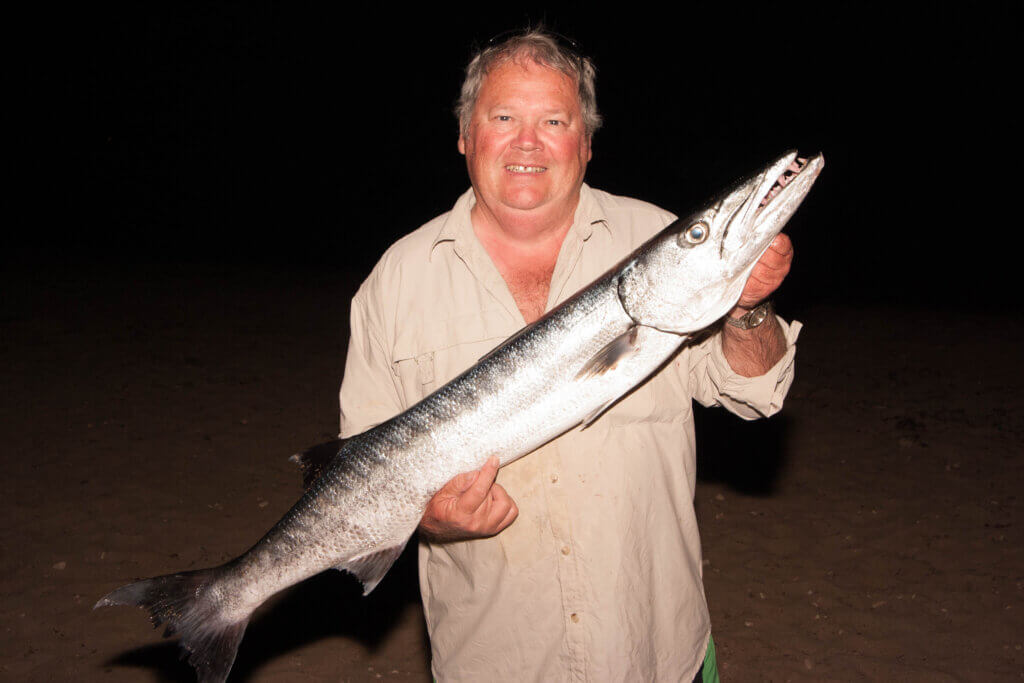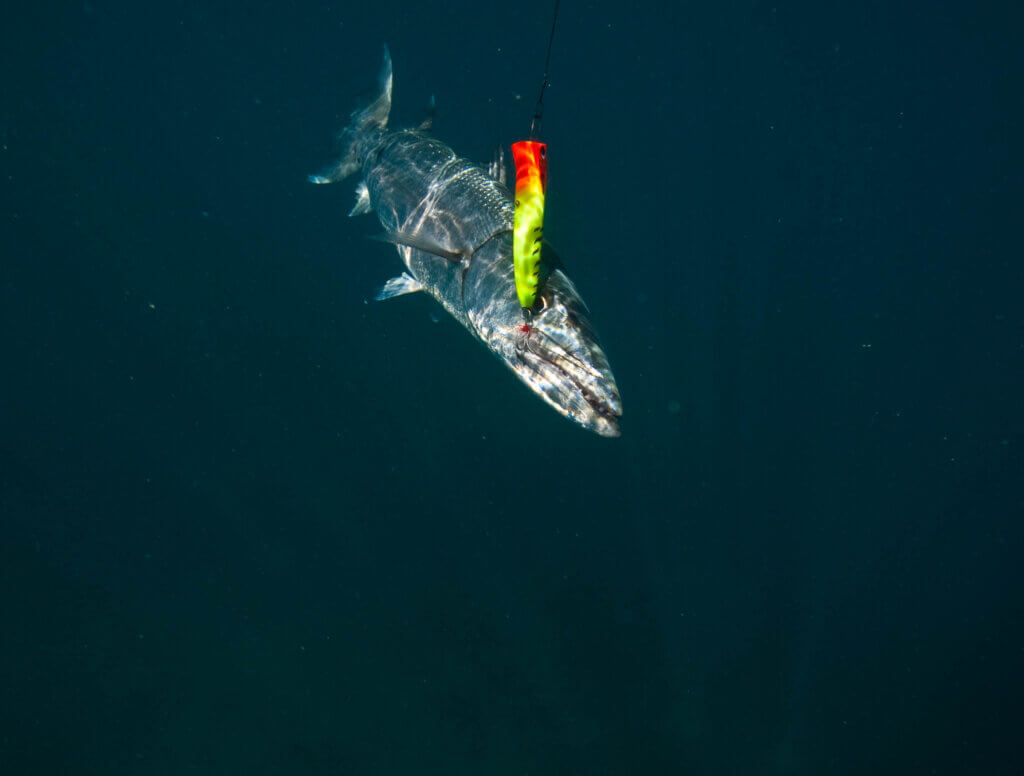This species shares its first five letters with the world-renowned barramundi. However, this ‘barra’, the barracuda, doesn’t share the same reputation among the fishing community. Read Western Angler editor Scott Coghlan’s latest edition of Scott’s Species below.
Species: Barracuda, Sphyraena barracuda
Eating: 3 stars
ID: Silver sides, grey bands along side, large teeth.
I have to say ‘cuda are one of the fish I try to avoid like the plague.

Indeed on our annual kayak trip to Wilderness Island they are one of only two species that earn points towards the wearing of the dreaded pink dress at the end of the week. And they seem to find me!
I’m not sure where my irrational dislike of barracuda came from, but possibly it was when I had a fishing companion explain that he lost an eye to one when an unhooking went wrong and the fish latched onto his face.
I reckon there are only two fish that actually try to bite you and they are ‘cuda and long toms. As such I dislike both quite a deal.
When you try to unhook them you can see their beady eyes watching every move, just waiting for an opportunity to sink their teeth into human flesh.
They also aren’t great fighters on the end of a line either, even at the huge sizes like the one Rex Hunt famously caught one day off a sand cay on his show.
WATCH: Legendary fisher Rex Hunt lands a big ‘cuda
You can imagine my disappointment at Cocos Islands earlier this year when I had a GT popper monstered with a big flash of silver after hours of unrewarded casting, only to have a dirty great ‘cuda reveal itself as the protagonist.
Fortunately, the hooks pulled before I had to deal with it.
Although there are actually several species of ‘cuda in Australian waters, the great barracuda is the most commonly encountered and are sometimes found from the South West of WA, but mainly from north of the Abrolhos, all the way north and across to lower Queensland.
Barracuda are a fearsome looking fish with their sharp teeth and are extremely aggressive, in and out of the water.
At their upper size of around 2m in length and 40kg in weight, they are best handled extremely carefully, as I’ve alluded to already.
Barracuda often travel in large schools and when they turn up, it can be best to move to a new area if you are chasing other species as they are voracious feeders.
They will hit any lure or bait and will bite through line if wire is not used. Although they hit often give up quite quickly they will sometimes jump in an attempt to throw the hooks.
While they are often used for food in areas like the Pacific, barracuda are not a popular eating fish in Australia.
They have soft flesh and are best consumed fresh. They can also be prone to ciguatera elsewhere, but not in WA waters.
